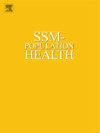美国的“文化违约”是如何挑战美国公共卫生的?公共卫生官员能做些什么
IF 3.1
2区 医学
Q1 PUBLIC, ENVIRONMENTAL & OCCUPATIONAL HEALTH
引用次数: 0
摘要
根据最近的回顾和理论整合,我们描述了美国和一些东亚国家如何应对大流行的六对不同的文化默认值:(1)乐观-独特性vs现实-相似性,(2)单一原因vs多重原因,(3)高唤醒情绪的表达与低唤醒情绪的表达,(4)影响控制vs等待调整,(5)个人选择-自我调节vs社会选择-社会调节,(6)促进vs预防。这些源自历史的违约行为往往超出了个人的意识,但在制度实践和政策、媒体和日常互动中得到反映和加强。它们被灌输了文化价值观,被理解为“正确的方式”,并在各自的环境中具有适应性。重要的是,这两组文化默认值都是可行的,这取决于要解决的问题。然后,我们提供了六种具体的方法,公共卫生官员在为下一次危机做准备和规划如何有效地激励人们保护自己和他人的健康时,可以有效地考虑这些和其他文化违约。我们的希望是促进在健康的社会决定因素范围内对文化的关注,并鼓励行为科学家和公共卫生从业人员之间建立更多的伙伴关系。认识到他们所保护的各种“公众”的文化默认值是至关重要的,因为美国公共卫生官员的目标是促进所有人的健康,这在日益个人主义的美国是一个重大而复杂的挑战本文章由计算机程序翻译,如有差异,请以英文原文为准。
How U.S. ‘cultural defaults’ challenge American public health and what public health officers can do about it
As practitioners and scientists reflect on what can be learned from COVID, we argue that cultural defaults—commonsense, rational, and taken-for-granted ways of thinking, feeling, and acting —played an important role in how countries responded to the pandemic, and help explain why the United States suffered 4-6 times more deaths per 100,000 people compared to the East Asian countries of Japan, Taiwan, and South Korea. Drawing on a recent review and theoretical integration, we describe six pairs of contrasting cultural defaults that were common in how the U.S. and some East Asian nations responded to the pandemic: (1) optimism-uniqueness vs. realism-similarity, (2) single vs. multiple causes, (3) expression of high vs. low arousal emotions, (4) influence-control vs. wait-adjust, (5) personal choice-self-regulation vs. social choice-social regulation, and (6) promotion vs. prevention. These historically-derived defaults are often outside of individual awareness, but are reflected in and reinforced by institutional practices and policies, the media, and everyday interactions. They are infused with cultural values, understood as the “right way” to be or behave, and are adaptive in their respective contexts. Importantly, both constellations of cultural defaults are viable depending on the problem to be solved. We then provide six specific ways in which public health officers might productively consider these and other cultural defaults when preparing for the next crisis and planning how to effectively motivate people to protect their own and others’ health. Our hope is to facilitate efforts to include a focus on culture within the scope of the social determinants of health and to encourage more partnerships between behavioral scientists and public health practitioners. Recognizing the cultural defaults of the various “publics” they seek to protect is critical as U.S. public health officers aim to promote health for all, a significant and complex challenge in the increasingly individualistic U.S.
求助全文
通过发布文献求助,成功后即可免费获取论文全文。
去求助
来源期刊

Ssm-Population Health
PUBLIC, ENVIRONMENTAL & OCCUPATIONAL HEALTH-
CiteScore
6.50
自引率
2.10%
发文量
298
审稿时长
101 days
期刊介绍:
SSM - Population Health. The new online only, open access, peer reviewed journal in all areas relating Social Science research to population health. SSM - Population Health shares the same Editors-in Chief and general approach to manuscripts as its sister journal, Social Science & Medicine. The journal takes a broad approach to the field especially welcoming interdisciplinary papers from across the Social Sciences and allied areas. SSM - Population Health offers an alternative outlet for work which might not be considered, or is classed as ''out of scope'' elsewhere, and prioritizes fast peer review and publication to the benefit of authors and readers. The journal welcomes all types of paper from traditional primary research articles, replication studies, short communications, methodological studies, instrument validation, opinion pieces, literature reviews, etc. SSM - Population Health also offers the opportunity to publish special issues or sections to reflect current interest and research in topical or developing areas. The journal fully supports authors wanting to present their research in an innovative fashion though the use of multimedia formats.
 求助内容:
求助内容: 应助结果提醒方式:
应助结果提醒方式:


